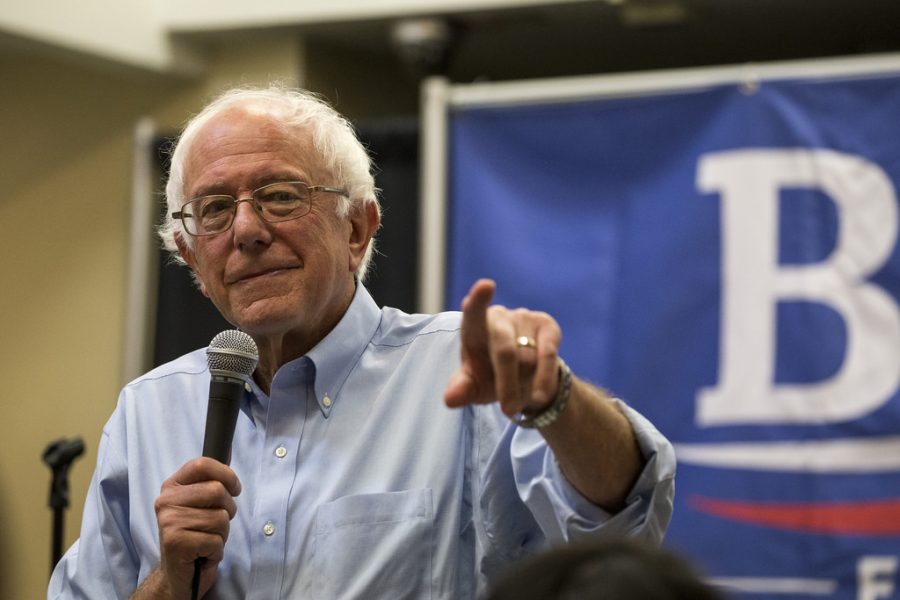Bernie Sanders Announces 2020 Presidential Bid
With Democratic candidates like Cory Booker and Kamala Harris, does Bernie Sanders stand a chance in 2020?
February 21, 2019
Senator Bernie Sanders (VT) confirmed on Tuesday that he is looking to secure the Democratic nomination for the upcoming presidential election. Sanders’s many far-left political advocacies include a $15 minimum wage, tuition-free public colleges and—most infamously—free Medicare. These positions have been met with scrutiny from moderate voters and the right wing. Other powerful Democratic politicians, such as Senator Cory Booker (NJ), Elizabeth Warren (MA) and Senator Kamala Harris (CA), have already announced their candidacies.
Sanders lost the Democratic nomination in 2016 to former First Lady and Senator Hillary Clinton (NY), whose win in the primary was met with controversy after accusations of backhanded deals with the DNC to secure her victory. Despite going on to win the popular vote, Clinton lost with 232 electoral votes against Donald Trump’s 306.
Democratic candidates face an uphill battle in 2020, as incumbents in any political position are difficult to oust. NPR elaborates, “In the past 10 presidential elections with incumbent candidates, the incumbents have won seven times.” This is because with incumbency comes a plethora of political advantages—some of which include fundraising, recognition, a strong national base and increased attention from the press. However, Sanders may meet a greater challenge than simply overturning Donald Trump: unlike 2016, where Clinton was his only real opponent, the Democrats are lining up for a real competition in 2020. Powerhouses like Booker and Harris, who have done a much better job appealing to the core Democratic base, may find much greater appeal going into the Democratic primaries. Sanders’s opponents are not the only difference between now and four years ago, however; his then-far-left ideology has begun to become the norm with new Democrats in office–especially Congress members like Alexandria Ocasio-Cortez (NY) and other representatives behind the Green New Deal. This means that he has effectively lost his niche and has a much smaller audience to appeal to.
That being said, Sanders still has a remarkably high approval rating with blacks and women. According to Vox‘s analysis on polling results in December of 2018, “African Americans (55-26) and Latinos (52-26) like Bernie, but he’s slightly underwater (43-45) with whites, faring especially poorly with white men (40-51) and working-class whites (38-44).” This dispels the myth of the “Bernie Bro,” which was a term coined in 2015 to describe young progressive white men that were fans of Sanders. It also means that other candidates like Booker and Harris may have a more difficult time obtaining these groups’ votes.
Can Sanders put up a fight in 2020? It seems unlikely. Even if he wins the fiercely competitive Democratic nomination, he still has to beat incumbent Donald Trump. However, at the very least, it’s clear that the 2020 election is shaping up to be a very interesting competition.

















































































































































